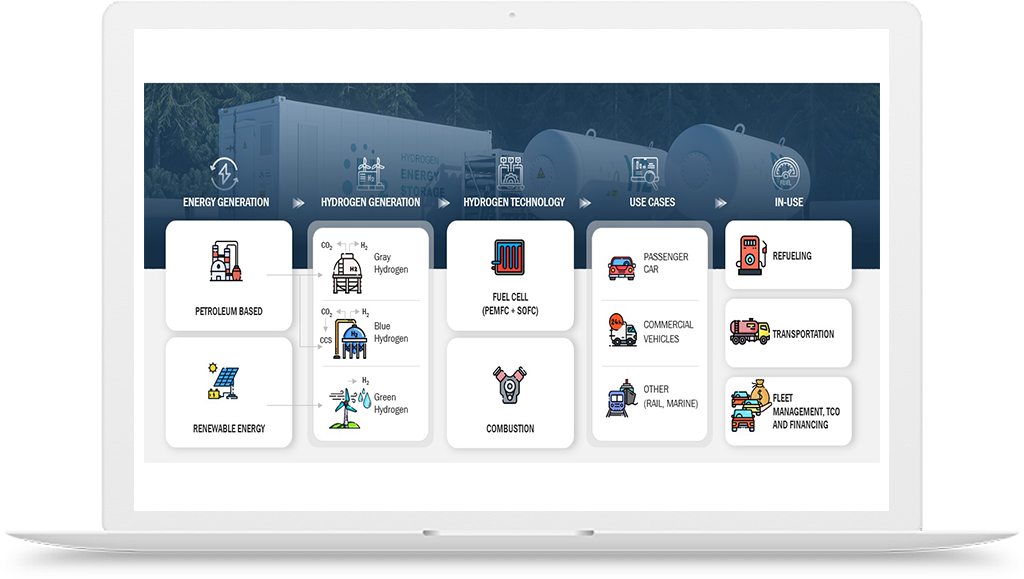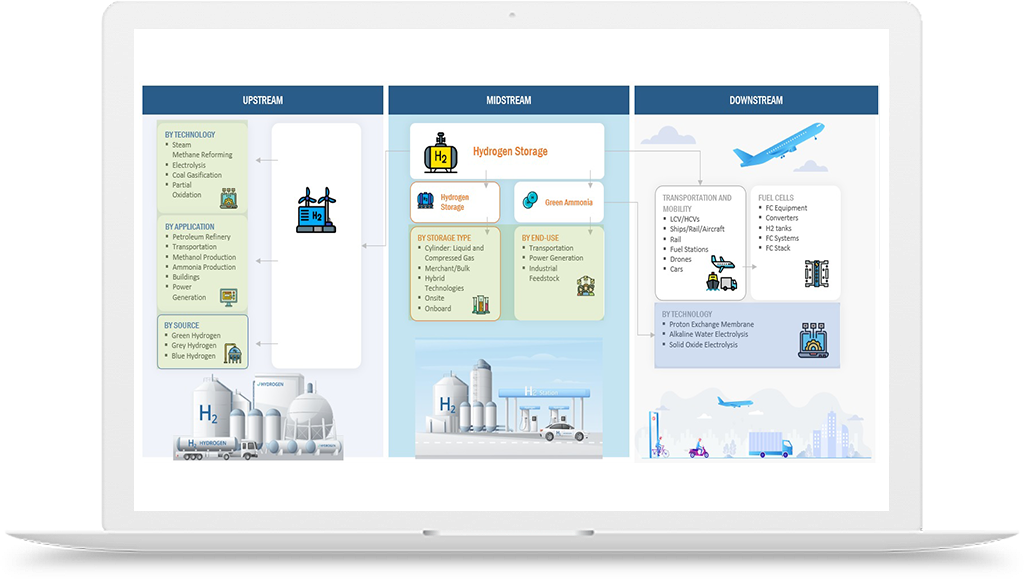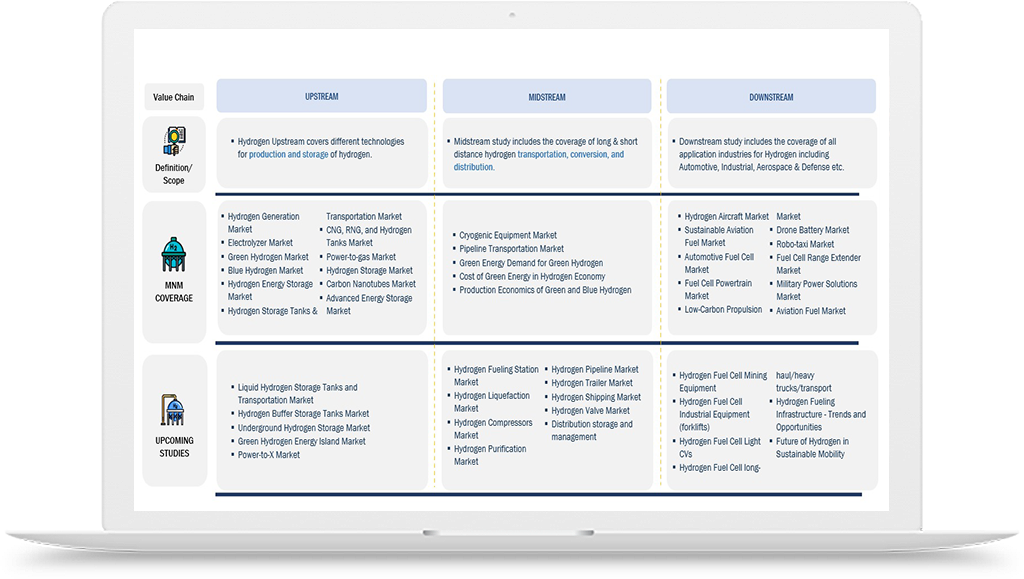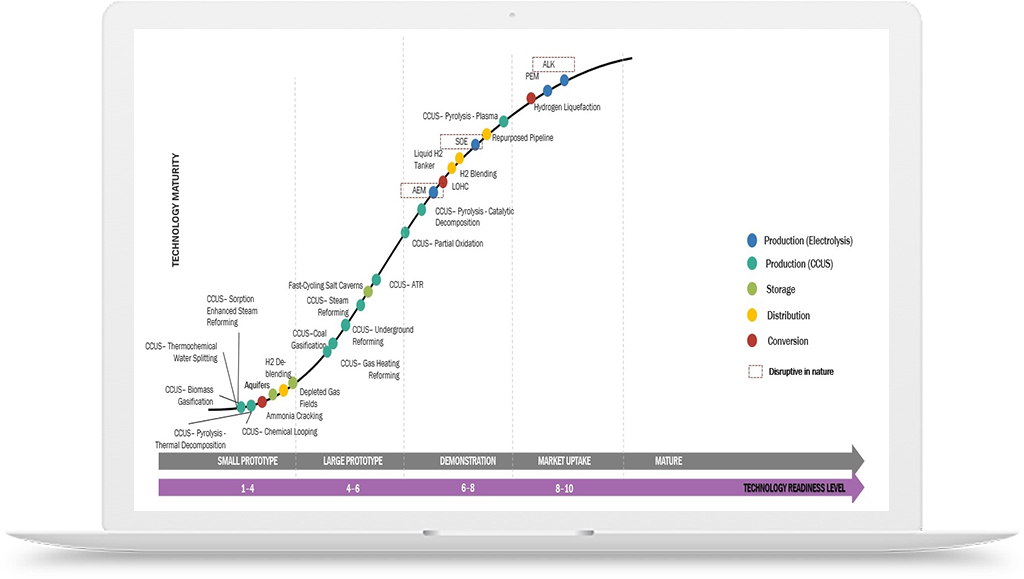Hydrogen Regional Market Potential
It is crucial to take into account elements like renewable energy resources, regulatory assistance, infrastructure development, and market demand while focusing on certain nations in the hydrogen market. There are appealing prospects in both markets, even if the market potential in industrialized and developing nations may differ. Here are some important ideas and illustrations:
Developed Hydrogen Markets:
Because of the growing Hydrogen Regional Market Potential, the developed hydrogen markets have a promising future. Around the world, regions are putting themselves in a strategic position to take advantage of the environmental and economic advantages of hydrogen technology. Asia is becoming more and more important, with significant investments being made in hydrogen infrastructure by South Korea and Japan. Europe is promoting a strong hydrogen economy with its ambitious Green Deal. Significant expansion is also occurring in North America, driven by policies promoting sustainable energy. The potential for the hydrogen regional market is opening doors for innovation, cooperation, and sustainable growth, promoting a worldwide shift towards an energy environment that is centered around hydrogen.
Asia's Pioneering Role in Hydrogen Market Development:
Asia, with its robust Hydrogen Regional Market Potential, is witnessing unprecedented growth. Japan, for instance, has committed substantial investments to propel its hydrogen economy, fostering a conducive environment for technological advancements and market expansion. South Korea, too, has embarked on an ambitious journey to establish itself as a hydrogen powerhouse, recognizing the vast Hydrogen Regional Market Potential that lies within its grasp.
- Germany: Germany is setting the standard for hydrogen adoption with the aim of dominating the global hydrogen market. Regarding renewable energy, the country has established legislation and set ambitious targets to promote the use of hydrogen in a range of industries, including transportation, industry, and power generation.
- Japan: As a key component of their energy revolution, Japan has been actively promoting hydrogen. National objectives exist for the development of infrastructure, the use of fuel cell vehicles, and the production of hydrogen.
- Netherlands: This nation has been a big user of hydrogen. It has developed a national hydrogen plan, focusing on several applications such as industry, transportation, and power generation.
Navigating the Future with Hydrogen Regional Market Potential:
The established hydrogen markets are setting the standard on a revolutionary path, driven by the immense power of the regional hydrogen market potential. Asia, Europe, and North America are seeing an increase in the urgency with which the potential of hydrogen for a vibrant and sustainable future must be realized. Changes in investments, collaborative activities, and legislation are shaping the continued growth of the Developed Hydrogen Markets. These markets, which are poised to spearhead the shift and establish the foundation for a more sustainable and renewable energy landscape, are being propelled by the considerable influence of the Hydrogen Regional Market Potential.
Developing Hydrogen Markets:
Developing countries have their unique market potential driven by factors such as rapid industrialization, increasing energy demand, and abundant renewable energy resources.
The growing list of Developing Hydrogen Markets highlights how important the Hydrogen Regional Market Potential has been in influencing the global energy environment. The Hydrogen Regional Market Potential emerges as a pivotal factor propelling breakthroughs and collaborations as nations across the globe hunt for more environmentally friendly alternatives. The identification of the regional market potential for hydrogen is influencing policy frameworks and strategic investments across continents, from Asia to Europe and North America. The Developing Hydrogen Markets are moving toward a sustainable future because to this dynamic interaction. The fact that Hydrogen Regional Market Potential has been incorporated so frequently highlights its pervasive influence and highlights how important it is to manage the shift to an energy environment powered by hydrogen.
- China: The country is making significant investments in both green and blue hydrogen, and it possesses the highest hydrogen production capacity globally. Transportation, manufacturing, and electricity production are just a few of the industries that the nation hopes to incorporate hydrogen into. Hydrogen finds a major market in China because to its size and dedication to sustainable energy.
- Australia: This country has abundant solar and wind energy resources. Making use of its potential for renewable energy, the nation has big hopes to become a global exporter of hydrogen. It seeks to both embrace hydrogen for domestic use and grow the export businesses for hydrogen.
- Saudi Arabia: Being a significant participant in the oil and gas industry, Saudi Arabia understands the value of varying its energy mix.
Developed and Developing Hydrogen Market Differences:
Developed hydrogen markets often have more mature renewable energy infrastructure and supportive policies in place. They also have established industrial sectors that can integrate hydrogen more readily. Developing hydrogen markets, on the other hand, may have higher energy demand and significant renewable energy resources, providing opportunities for both domestic consumption and potential hydrogen exports.
Although subtle, the distinctions between developed and developing hydrogen markets are crucial to comprehending the world's shift to sustainable energy sources. The Hydrogen Regional Market Potential has already been somewhat realized in Developed Hydrogen Markets, which are distinguished by sophisticated technology and established infrastructures. In contrast, the focus of developing and utilizing the enormous unrealized potential of the regional hydrogen market is what matters most in Developing Hydrogen Markets. In order to guarantee a smooth and inclusive shift to an energy landscape that is centered around hydrogen, it is essential to take advantage of the potential of the regional hydrogen market as investments and partnerships take shape.
Attractive Markets for Hydrogen:
Due to the identification of its regional commercial potential, hydrogen is beginning to find a home in lucrative markets throughout the world. The potential for the hydrogen regional market is a major motivator in Europe, where nations like France and Germany are making significant investments in hydrogen infrastructure. Asia embraces the Regional Market Potential for Hydrogen, led by South Korea and Japan, and this is resulting in creative ideas. North America shapes a potential market by utilizing the Hydrogen Regional Market Potential and focusing on sustainable solutions. The strategic utilization of Hydrogen Regional Market Potential is crucial for sustainable growth and a cleaner energy future, particularly as potential markets for hydrogen continue to emerge.
Several markets across sectors show strong attractiveness for hydrogen adoption:
- Transportation: Hydrogen has a great potential for usage in heavy-duty vehicles like trucks, buses, and trains since it has a greater range and takes less time to recharge than battery electric cars.
- Industrial Processes: Hydrogen finds application in the steel, chemical, and refining sectors, where high temperatures are required for heat or feedstock. By substituting hydrogen for fossil fuels, carbon emissions in these regions can be significantly reduced.
- Power Generation and Energy Storage: Hydrogen may be produced by utilizing excess electricity, which can help balance out intermittent renewable energy sources.
In summary, while developed markets like Germany, Japan, and the Netherlands are leading the way in hydrogen adoption, developing markets such as China, Australia, and Saudi Arabia offer significant potential due to their renewable energy resources and growing energy demand. Transportation, industrial processes, and power generation/energy storage are attractive sectors for hydrogen adoption across both developed and developing markets.
















